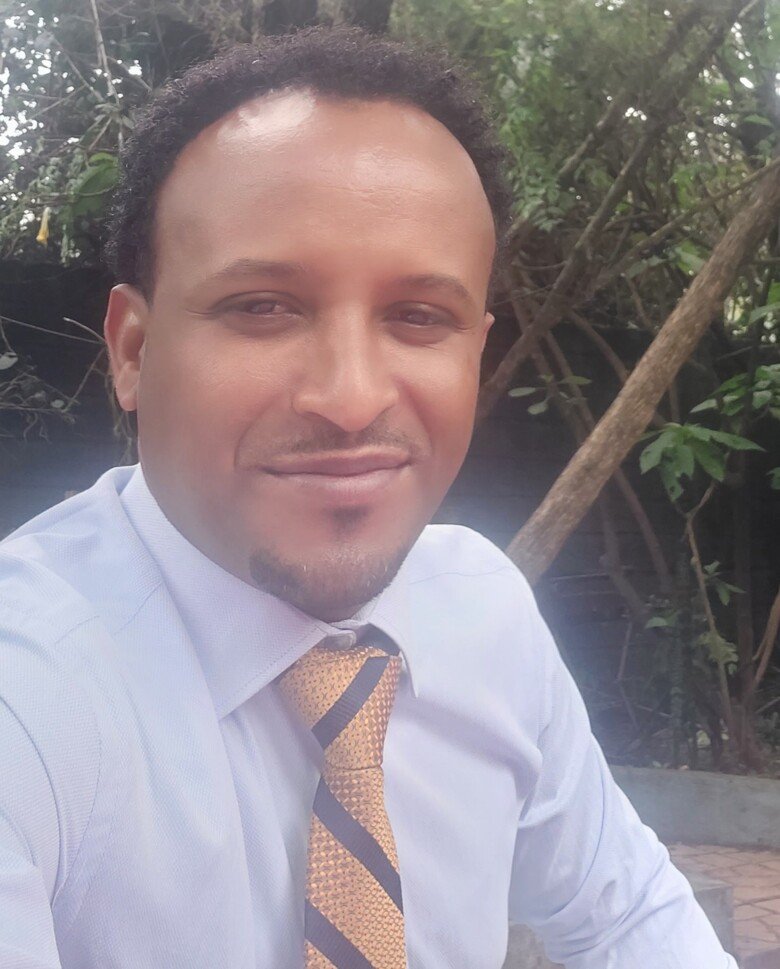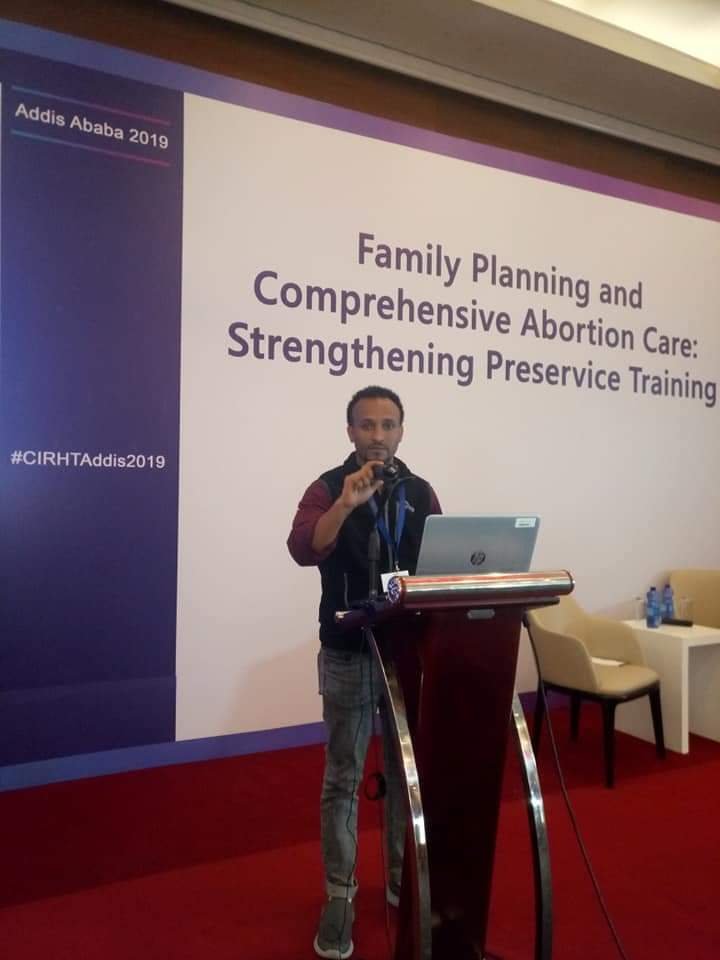KI training supports midwife Tewodros Seyoum's quest to improve the Ethiopian healthcare system
When Tewodros Seyoum wanted to improve his competence and leadership skills as a midwife, a KI education was the obvious choice. The training opened the door to a more active leadership style and knowledge that contributes to improving the Ethiopian healthcare system.

Dr. Tewodros Seyoum was the first to obtain a doctorate in midwifery in Ethiopia. He is now in the process of building an international career.
“Today, I see myself as an international midwife. We need to scale up the educational opportunities in our field and work towards the UN’s global goals. Improving the quality of care must be our goal on a daily basis,” says Seyoum.
Finding a time to speak with Seyoum is not easy. His commitment to improving research, education and the Ethiopian healthcare system is obvious. When we catch up with him, he’s come straight from a board meeting for the Ethiopian Midwives Association. Since 2008, he has been working as a lecturer at the University of Gondar in one of Ethiopia’s northern regions.
“My life is continual learning, so I’m always looking to improve my knowledge and skills. For us in Ethiopia, it’s especially important that we share knowledge and experiences with each other, and we do that best through more teamwork.”

The midwife at the centre of a multidisciplinary team
When the University of Gondar planned to launch a midwifery doctoral programme, it wanted to do so in collaboration with an international university. They chose Karolinska Institutet and the Department of Women’s and Children’s Health. In the first year, eight students were accepted on the course, and since then the programme has grown. Today, the doctoral programme is run in collaboration with the University of Gondar and KI.
KI has subsequently launched the “Capacity building programme for public health officials in maternal and child health” with funding from the Swedish Institute. Programme participants are trained according to the so called Midwize Swedish care model. The model puts the midwife at the centre of a multidisciplinary team that surrounds mother and baby throughout the pregnancy. Seyoum participated in the first round of the programme.
“From the programme, we gained the relevant knowledge to develop a more interdisciplinary approach. At the same time, we received guidance to develop more sustainable leadership styles. The programme showed how midwives can work with active leadership in a team with several different skills,” says Seyoum.
The “Capacity building programme for public health officials in maternal and child health” is aimed at participants in Kenya, Malawi, Ethiopia and Uganda.
“The fact that the participants are drawn from several different countries was a strength”, says Seyoum.
“It gave us excellent opportunities to share experiences with each other. In East Africa in particular, we face the same challenges and share similar goals. The programme emphasises active daily learning between participants in each care team.”
“Working with so-called 360-degree learning and feedback paves the way for better transfer of knowledge between senior and junior team members, which is very important,” says Seyoum.
Focus on improving care standards
The “Capacity building programme for public health officials in maternal and child health” focuses on improving care standards based on evidence-based qualitative models.
“We were given examples of several methods, such as waiting a few minutes before cutting the umbilical cord, to improve baby’s health. We have now produced our own quality documents with the help of the knowledge we gained from the programme.”
Although he has completed the programme, Seyoum has remained as project co-ordinator. Today, he is a very active alumnus with close contact with Karolinska Institutet and has also developed collaborations with other international universities. He is also part of an expert group at Ethiopia’s Ministry of Health that works to strengthen quality standards in the country’s healthcare system.
“I see myself as part of the Ethiopia of the future and know that we must build our future on more international collaborations. Some time ago I had the privilege of visiting Stockholm and hope to one day get a position as a postdoctoral fellow at an international university,” says Seyoum.
Tewodros Seyoum
Age: 36
Family: Wife and two children
Lives: Gondar, Ethiopia
Hobbies: Loves reading and spending time with his family
Research area: Midwife-led implementation research focusing on Maternal and Child Health interventions, such as antenatal care, family planning, and comprehensive abortion care. As lead researcher, Seyoum has received grants from international funders such as the International Confederation of Midwives (ICM), Johnson & Johnson, the Laerdal Foundation, and UK FCDO
About the programme
The “Capacity building programme for public health officials in maternal and child health (MIDWIZE)” is funded by the Swedish Institute through the SI Public Sector Innovation Programme, which targets universities and colleges. The training programme is carried out in cooperation with key public sector actors in low- and middle- income countries with the aim of promoting innovation and sustainability in partnering countries.
MIDWIZE is a a one-year online training programme which is delivered within the Centre of Excellence for Sustainable Health, collaboration between Karolinska Institutet and Makerere University in Uganda.
